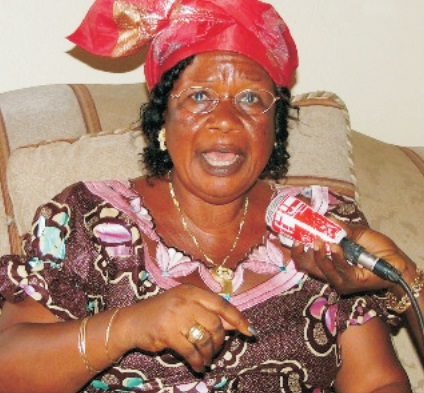The recent dispute between Madam Nancy B. Doe, widow of slain Liberian President Samuel Kanyon Doe, and Senator Zoe Emmanuel Pennue, a family member of the late president, over a memorial ceremony highlights the complexities of grief, family dynamics, and national reconciliation. The disagreement stemmed from Senator Pennue’s initiation of a traditional military memorial ceremony for President Doe without the involvement of Mrs. Doe and her children, who believed they should have led the proceedings. This internal family conflict, played out in the public eye, underscores the need for unity and reconciliation, especially as the Liberian government plans a state reburial for both President Doe and former President William R. Tolbert, two leaders whose deaths left deep scars on the nation.
The controversy surrounding the memorial ceremony serves as a microcosm of the broader challenges facing Liberia as it grapples with its past. President Doe’s violent death at the hands of rebel forces in 1991, after being captured during a visit to the regional peacekeeping force ECOMOG, remains a traumatic event in the nation’s history. The public nature of his execution, including his reported decapitation, further intensified the national trauma. The dispute between Mrs. Doe and Senator Pennue reveals the lingering pain and unresolved emotions surrounding his death, even decades later. It also emphasizes the importance of finding respectful and inclusive ways to commemorate historical figures, particularly those whose legacies are intertwined with both positive contributions and tragic events.
While the family disagreement is regrettable, it presents an opportunity for healing and reconciliation. Mrs. Doe’s call for her family to be at the forefront of memorial arrangements is understandable given her position as the widow and mother of President Doe’s children. However, the broader context of national healing requires a more inclusive approach. Senator Pennue’s initiative, though perhaps inadvertently insensitive to the immediate family’s feelings, could be seen as an attempt to honor President Doe from a broader familial and community perspective. Reconciling these different perspectives is crucial for the family’s unity and for the nation’s ability to move forward.
It is imperative that the Doe family finds a way to resolve their internal differences and present a united front as the government prepares for the reburial of President Doe and President Tolbert. Public airing of grievances, particularly through media statements, risks exacerbating tensions and hindering the healing process. Instead, private family discussions and mediation could provide a more conducive environment for finding common ground. Mrs. Doe, as the matriarch of the family, is uniquely positioned to lead this process of reconciliation. By fostering open communication and understanding within the family, she can help ensure that President Doe’s legacy is honored in a way that respects both his family’s grief and the nation’s need for closure.
The government’s plan to rebury both President Doe and President Tolbert signifies a commitment to national reconciliation and healing. By laying these two leaders to rest with dignity and respect, the nation can begin to close a painful chapter in its history. The symbolic act of reburial can serve as a catalyst for broader reconciliation efforts, allowing Liberians to confront their past and move towards a more peaceful and united future. The Doe family’s participation in this process, with a spirit of unity and forgiveness, will be instrumental in its success.
President Doe’s legacy is complex and multifaceted. He is remembered for his contributions to national development, including his focus on agriculture, modernization of the police force, and improvements to the military. His passion for sports also played a role in fostering national unity. However, his presidency was also marked by controversy and ultimately ended in tragedy. By acknowledging both the positive and negative aspects of his leadership, Liberians can begin to have a more nuanced understanding of their history. The upcoming reburial provides an opportunity for reflection and dialogue, allowing the nation to grapple with its past and chart a course towards a more hopeful future. The Doe family’s participation, marked by unity and reconciliation, can serve as a powerful example for the entire nation.














